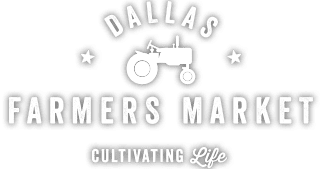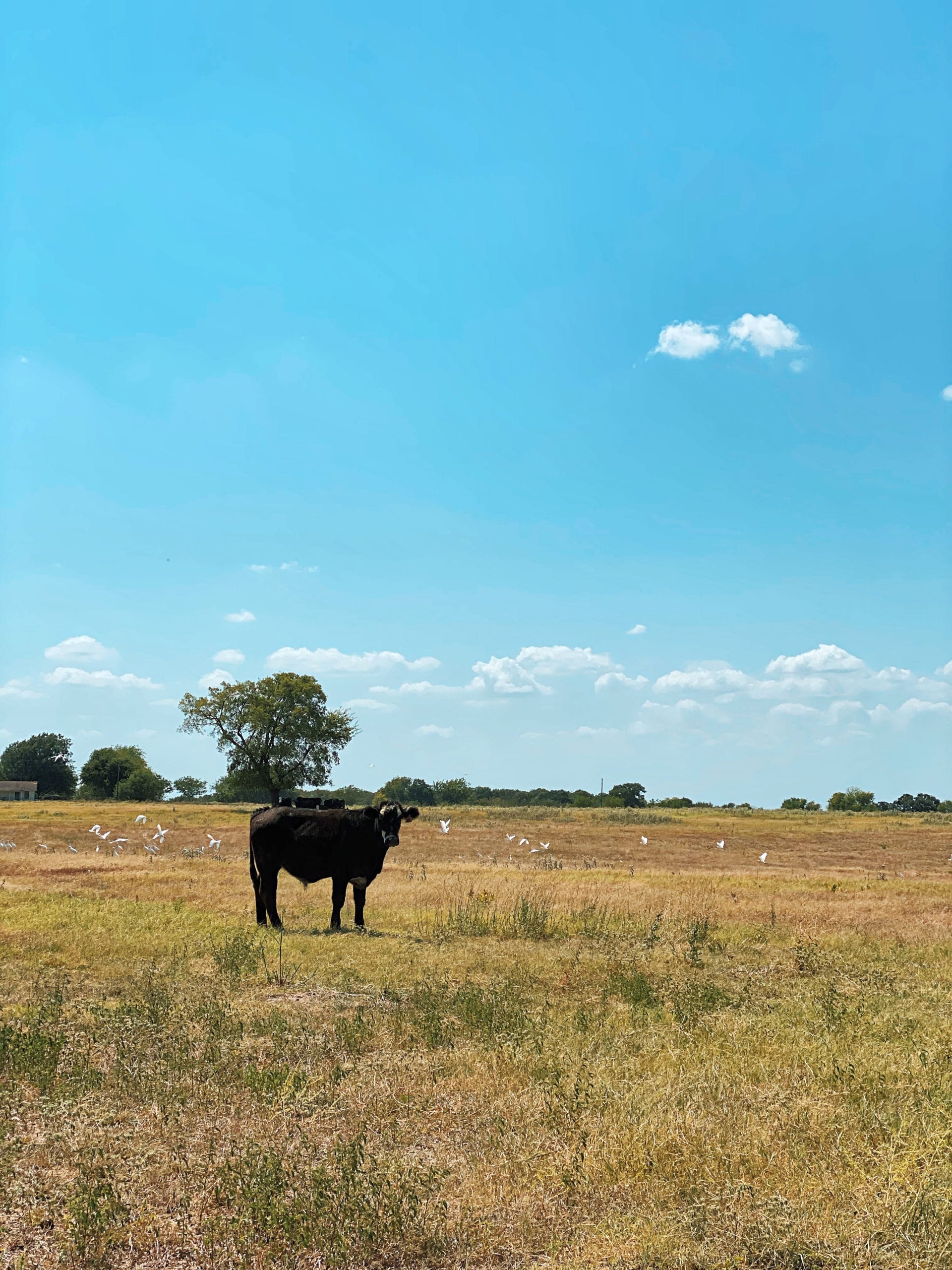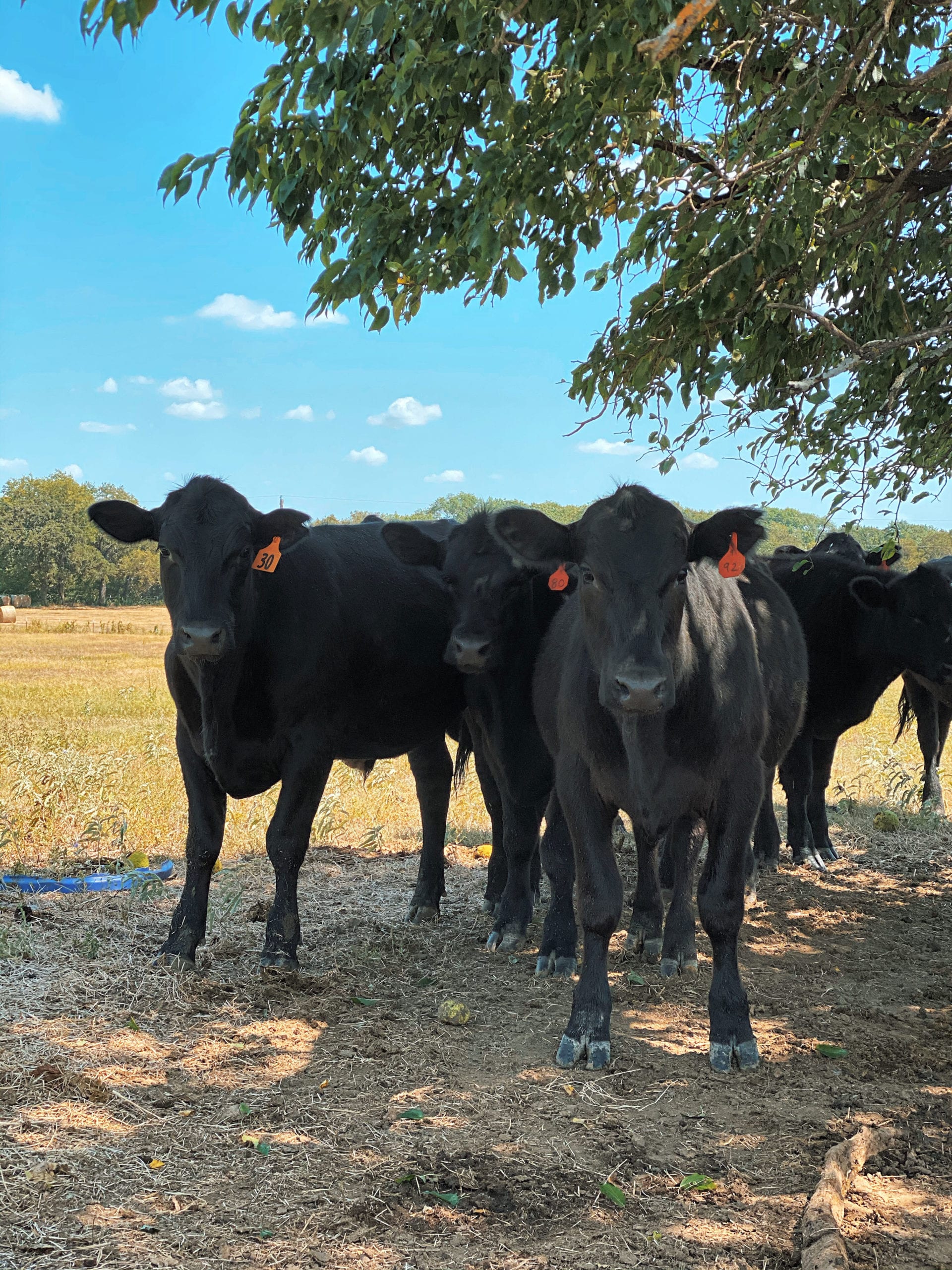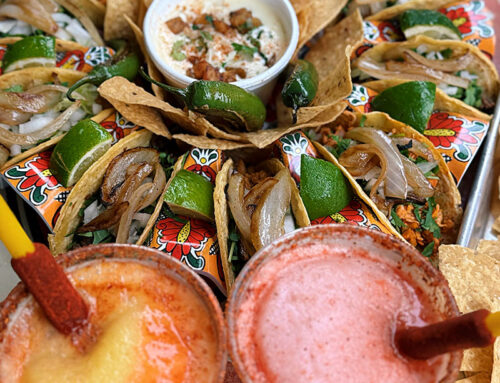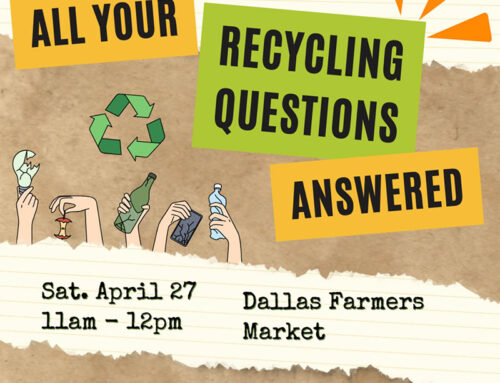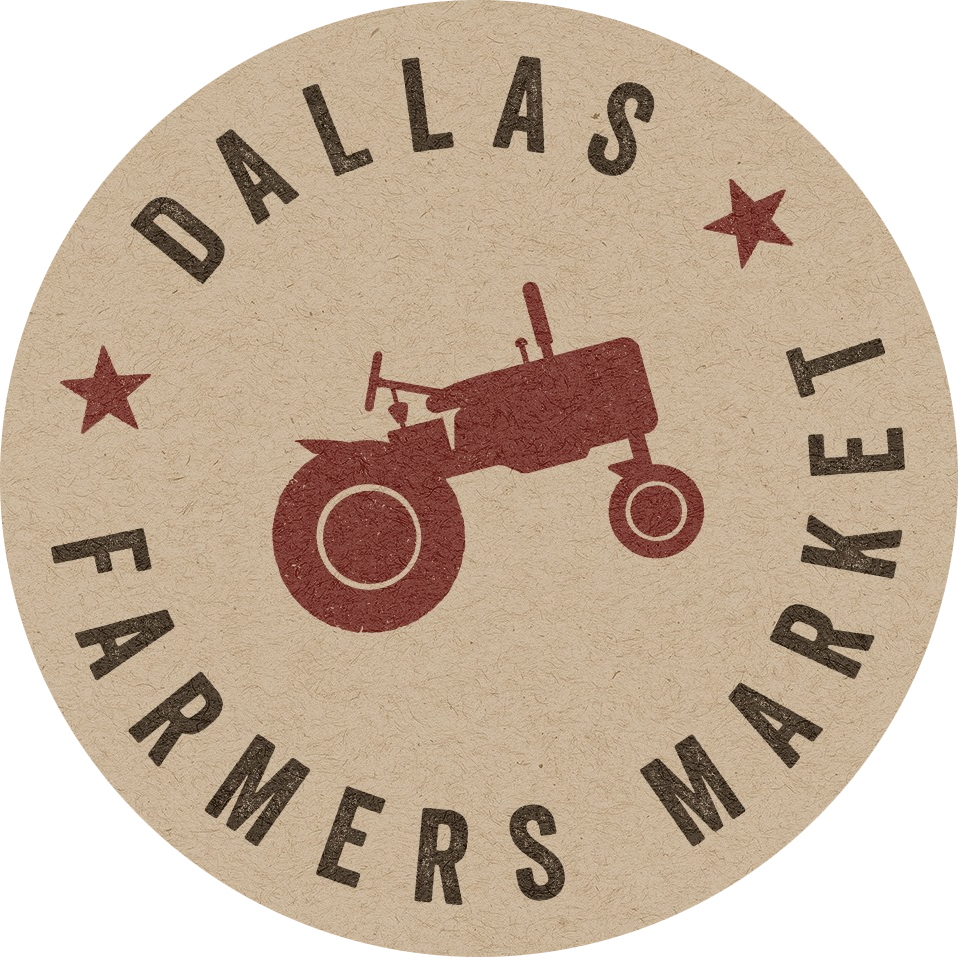When we head out to the farmers market, reusable bags and coolers in tow, we usually go out intending to find food we can trust. We want to know exactly where that produce was grown and ask questions about the process. We are “beyond the nutrition label” people over here. There’s something refreshing about knowing the origins of your meal, especially for urbanites who are just as likely to walk their dogs on astroturf as they are real grass. While this ultra-modern world is shiny and new, many of us are left longing for a connection to the idyllic farm where our tomatoes were picked just a day ago and the cows happily graze green pastures. Just by shopping at the farmers market, we can become part of the story — the reason the farmer tilled the ground and the inspiration behind converting a conventional beef operation into a biodynamic grass-fed cattle ranch. Does the second example sound a bit specific? That’s because it is. Happy Hollow Ranch of Wills Point, TX took initiative in 2017 to become a frontier of sustainable agriculture. The strides that have been made go far beyond what a label can tell you about their farm, but hey — if it’s labels you want, they’ve got those too (but more on that later.)
Happy Hollow Ranch, founded by famed Dallas Cowboy Chuck Howley, has been a cattle and quarter horse operation since it’s early days starting in 1977. While Chuck loved the property and roamed his 1800 acre ranch like a true Texan cowboy, even his land came to the same pivotal moment that so many of our open pastures face these days. Who in the Howley family would “take the reins” to lead the ranch into the next 40 years of success? As with many family properties, someone would need to step up or the property would be sold. In 2017 Chuck’s grandson, Brandon Howley, chose to step up and take on the challenge of managing the operation and in doing so started a bigger project than many would care to approach. With a hard look at finances and the future of the cattle industry, Brandon knew he wanted to take the ranch to the next level with grass-fed and finished beef, regenerative practices, and lead the industry with humane animal treatment. While many of these terms are familiar to us, few of us have the opportunity to see them in action.
What is the advantage of a grass-fed & finished operation? What does the “finished” part even mean? While conventional cattle operations tend to feed their animals any economic combination of GMO-corn or soy, grass-fed & finished operations commit to grazing their cattle on open pastures. Ruminants (cows, sheep, deer, and the like) specially adapted to feed on and gain nutrients from grasses. When they receive a grain-heavy diet as an alternative for extended periods, a slew of health issues tend to follow–e.i. Digestive issues and susceptibility to E. Coli. While many cattle operations may start their cows on grass, even the majority of these cows ultimately end up in feedlot operations during the final stages of their life (called “finishing”) where they consume a high-fat diet designed to bulk up the animals and create the marbling effect that many customers desire. Therein lies the difference between “grass-fed” and “grass-finished” beef. Grass-fed and finished beef graze on open pastures for their entire life. Given the discomfort caused by conventional feeds, it’s not hard to see why a grass-fed diet alone is a great first step to a more humane operation but the full scope includes everything from the number of cows per acre of land, no use of electric prods, to even the amount of stress the animals experience during weaning.
Since all of this effort would be nearly invisible to the consumer unless they visit the farm–which they are welcome to do–Brandon had the fore-thought to obtain multiple certifications that verify the quality of his cattle ranch including an Animal Welfare Certification from the Global Animal Partnership and membership with the American Grassfed Association.
Labels are a funny thing that many of us rely on to tell the story of our food. Is it Organic, Fair-Trade, Non-GMO…the list goes on. Despite the many certifications on a package, they can’t truly convey the full story and heart of an organization. While Happy Hollow is Grassfed certified, who would know that they also offer a full life history of the beef you purchase right down to an actual genetic test that can tell you which of their bulls is the father? That sort of personalized experience doesn’t fit on a 1×1.5 stamp on the front of your sirloin. Luckily for us, when you visit the Dallas Farmers Market you can find out the full story of your food from the ranchers, growers, and makers themselves.
The transition to a sustainable ranch has opened many doors for Happy Hollow Ranch, from partnerships to improve local biodiversity with Texas Parks & Wildlife to dedicating a portion of the ranch to solar farming,Brandon is looking at creating a flourishing ranch. Who knows, maybe in the next 40 years one of his young daughters will guide Happy Hollow to the next frontier of sustainable agriculture.
